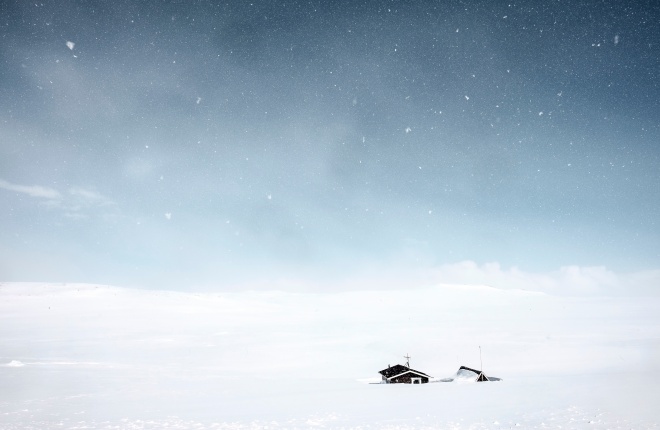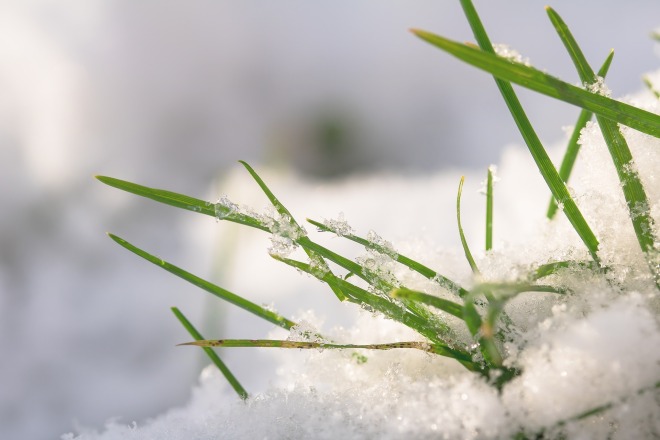Whether you want to call it the winter blues, seasonal affective disorder (SAD) or seasonal depression, the winter season DOES produce feelings of sadness, hopelessness, despair and loneliness in many people. Usually this change occurs between the months of September and April, with many people noticing a serious change throughout January and February.
If the winter months have you feeling suicidal, I recommend seeking professional help from law enforcement, a hospital, your doctor, or mental health crisis centre.
Why Does the Weather Get Us Down ?
The Earth is tilted slightly. When the Earth rotates around the Sun, the northern and southern parts of the Earth will become closer or further away from the Sun, creating the seasons.
When a nation experiences winter, it is because their part of the Earth is tilted AWAY from the sun for a period of time. This lack of sun exposure (shorter days and cooler rays) has an effect on human beings, as well as other animals.
Exposure to sun is essential to our well-being. Sunlight is absorbed through our skin as well as sinuses in our skull. It impacts how we respond to Vitamin D, how we metabolize energy, to what positive hormones we produce. (Read more about that here) This all makes sense from an evolutionary viewpoint, we evolved without dense fur in order to maximize our sun exposure.
However, winter means cold. No dense fur means we need to wear layers, a lot of layers. With only our cheeks exposed to sunlight, it is impossible for us to receive enough of the weakened sunlight during the shortened days to have a positive impact on our well-being.

Cold also means increased time indoors. Many people feel isolated, lonely, trapped and confined during the winter months. The terms “cabin fever” and “shack wacky” have also been used to describe how someone feels when confined within a building for long periods of time. As much as we don’t like to admit it, we are still beings that appreciate the freedom and open space of simply being outside.
Hibernation is something that bears do, that humans have somewhat adapted. This is perfectly fine if you are content spending 3 months in your PJs, but this decrease in physical activity and feeling of confinement does affect some people mentally. Exercise helps relieve tension, stress and we produce endorphins that help combat negative feelings.
Other Contributors to our Depressed Mood
Like it or not, the holidays aren’t pleasant for everyone. Winter is often a season spent feeling guilty for spending money we didn’t have to purchase gifts that were really not necessary, or feeling resentment for spending time with the people we would have rather avoided. Not everyone has positive relationships with their families and co-workers, however during the holidays many of us have this expectation of ourselves that we need to put all of that aside and mingle. I am sure it is obvious why this negatively affects mental well-being.
Perhaps you have made a new years resolution. Now you have the stress and pressure to achieve your goal(s). You can read more about why I don’t make new years resolutions here.
So What Can We Do to Survive the Winter?
Don’t judge how you feel as bad, abnormal, or negative. Simply accept that this happens to MANY people this time of year – because we are natural beings who evolved to be outside in the sunlight, and we are living in parts of the world where at certain times of the year there is less sunlight.
Be kind and patient with yourself when you are feeling down or angrier than usual. Your body and emotions are just trying to cope with the environmental change. Also, realize that OTHER people are experiencing the same thing. We all have the tendency to spend too much money over the holidays, make resolutions we don’t keep, and avoid the cold completely by isolating ourselves in our homes to keep warm. Show forgiveness to others when you notice they are feeling down or angrier than usual.
Stay active. There are plenty of indoor and outdoor physical activities to participate in. From yoga to adult dodge ball, check to see what is happening in your area. Also, if you dress warmly enough, there are many winter specific physical activities to enjoy.

Engage your brain with something new. Meditation, arts and crafts, music, trades and clubs – all great ways to pass the winter months AND combat isolation and loneliness by meeting new people.
Here are Some Other Things To Try
There are various nutritional supplements that claim to help with depressive symptoms. Contact your mental health professional, your doctor, a naturopathic doctor or holistic wellness clinic to discuss those options and whether they would be right for you.
Sun light lamps are designed to simulate natural sunlight and increase our hormones that are affected by natural sunlight. I have heard mixed reviews, so if you are interested in this option please do your research well.
If all you can see is winter sadness, I’m here remind you that the plants lie underneath the snow, waiting for winter to pass to grow again.



Thank you – great article! I’ve heard about SAD but never really understood it.
LikeLiked by 2 people
Winter and its lack of sunlight really affects my moods, but I have discovered that if I push myself to stay more active longer at night and I don’t feel the need to hibernate as much. Lovely article, thank you for sharing.
LikeLiked by 2 people
Highlighting mental health wellbeing is such an important thing to do, with practical tips on how to thrive in winter, thank you.
LikeLike
I loved this. All the key points that I remind myself of daily. The winter season becomes a mental battle sometimes without sunlight there to wake you. I really enjoyed this blog.
Here’s my latest, in regards to mental wellness. I am a new blogger with some short stories to tell about my own battle cries and survival through it. Happy reading!
http://faultyoccasions.blog/2018/02/07/colors-in-her-mind/
LikeLike